Tuvaluans determined to stay put are fighting challenges from rising tides to depopulation
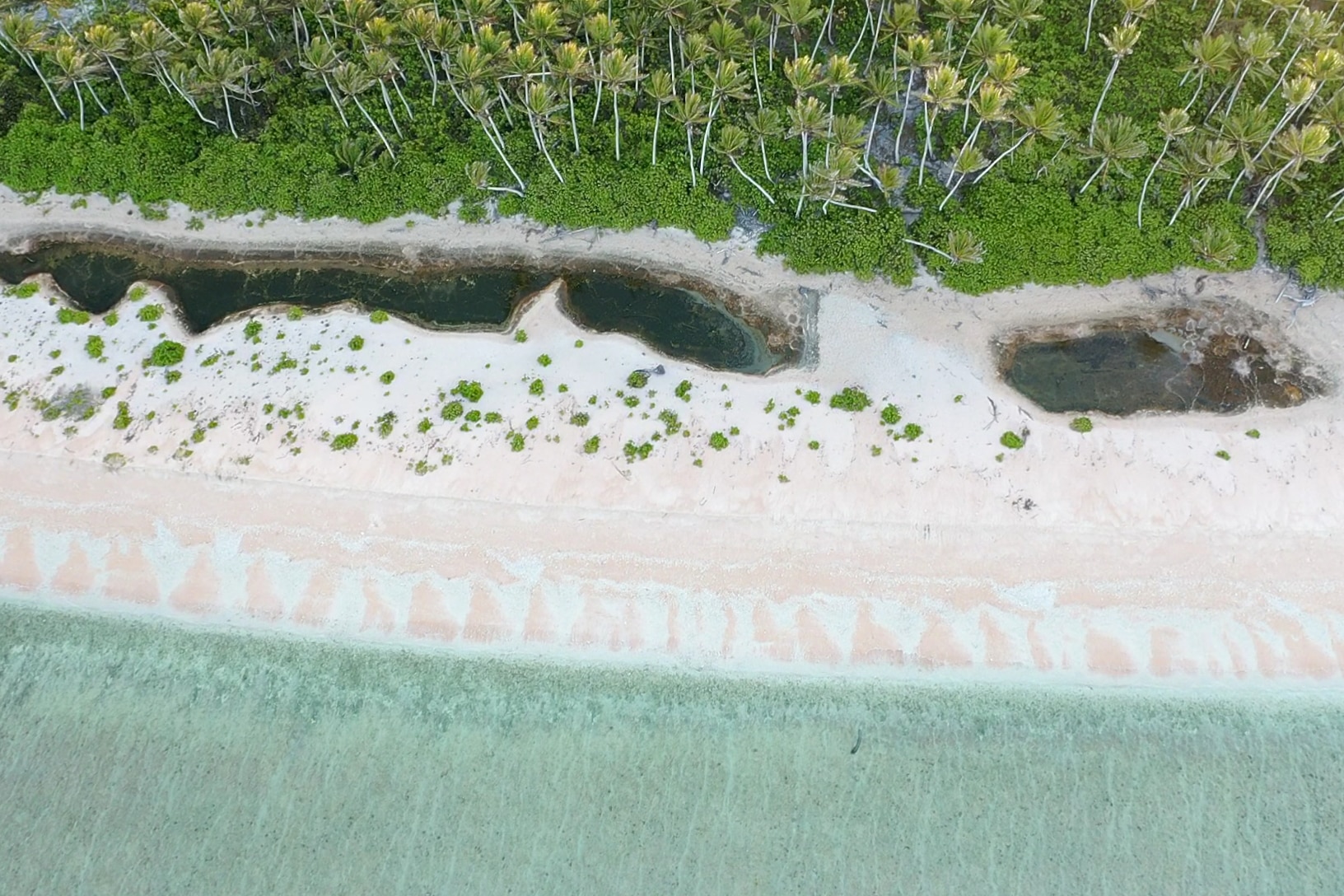
Pacific Island countries contribute less than 0.02 per cent to the world’s total greenhouse gas emissions while being uniquely vulnerable to the effects of climate change.
Talua Nivaga is determined to save his homeland.
As the co-founder of Tuvaluan youth climate group Fulifafou, he's watched the rising seas encroach and swallow parts of his island nation.
While many Tuvaluans are considering migrating to escape the worsening effects of climate change, Mr Nivaga has told the ABC he is resolute in staying and fighting for the future of Tuvalu.
"What is an absolute and certain need of the people is action — there's so much talk that has been done," he said.
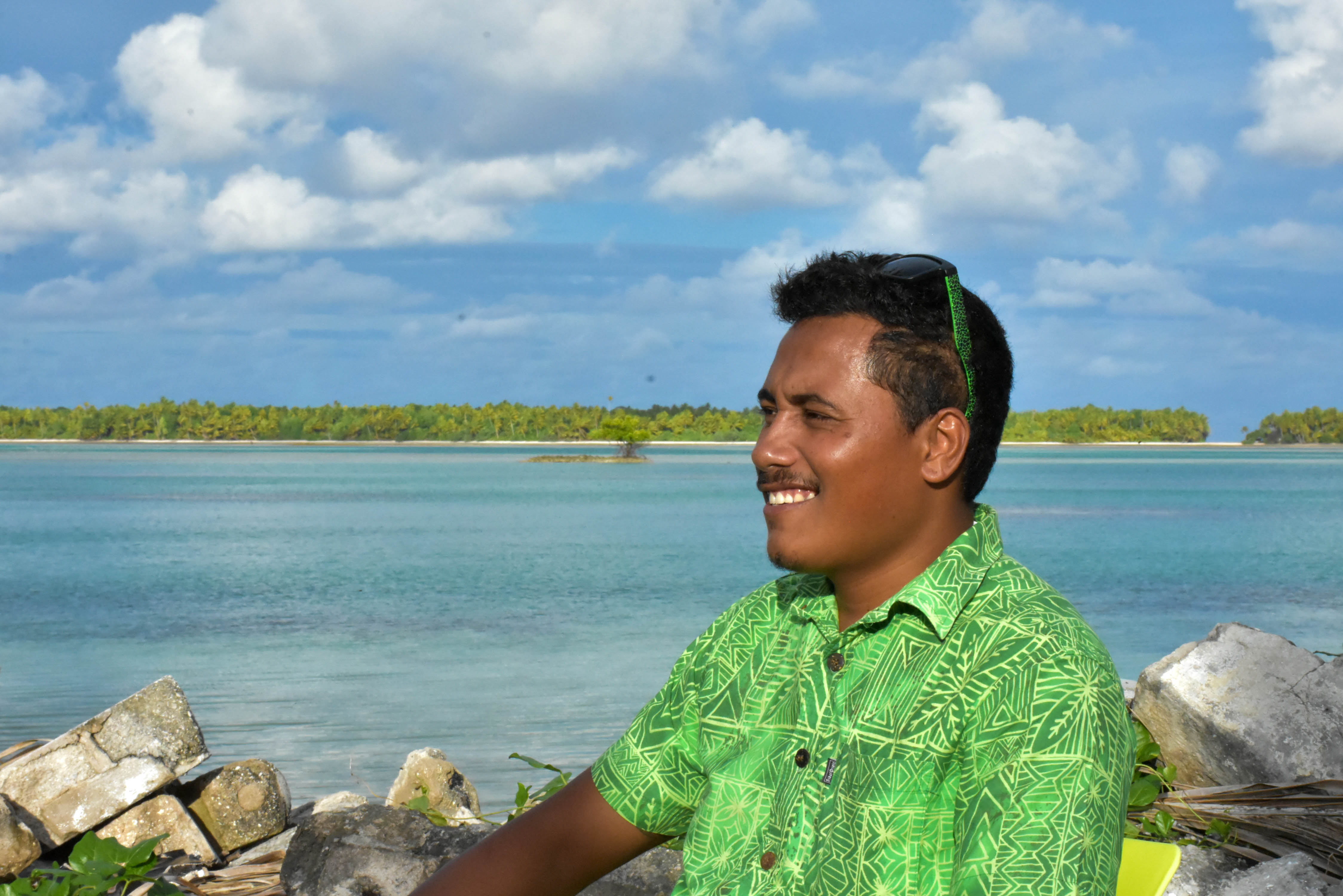
Talua Nivaga is the leader of a youth climate group in Tuvalu.
"Tuvalu is the only paradise that I call home, and … it is never easy to leave home.
"Home carries millions of our stories that no other place in the world could replace."
Today, October 1, marks Tuvalu Independence Day — the date that, in 1978, the island became an independent sovereign state.
However, it's now a nation under threat.
Tuvalu is on the front lines of the climate crisis, with regular flooding already destroying vital crops and infrastructure.
Pacific sea levels are rising faster than the global average, putting Tuvalu at even greater risk, according to a recent report from the World Meteorological Organization.
In response to this existential threat, last month Australia and Tuvalu signed the Falepili Union, offering up to 280 Tuvaluans — 2.5 per cent of the population — permanent residency in Australia each year.
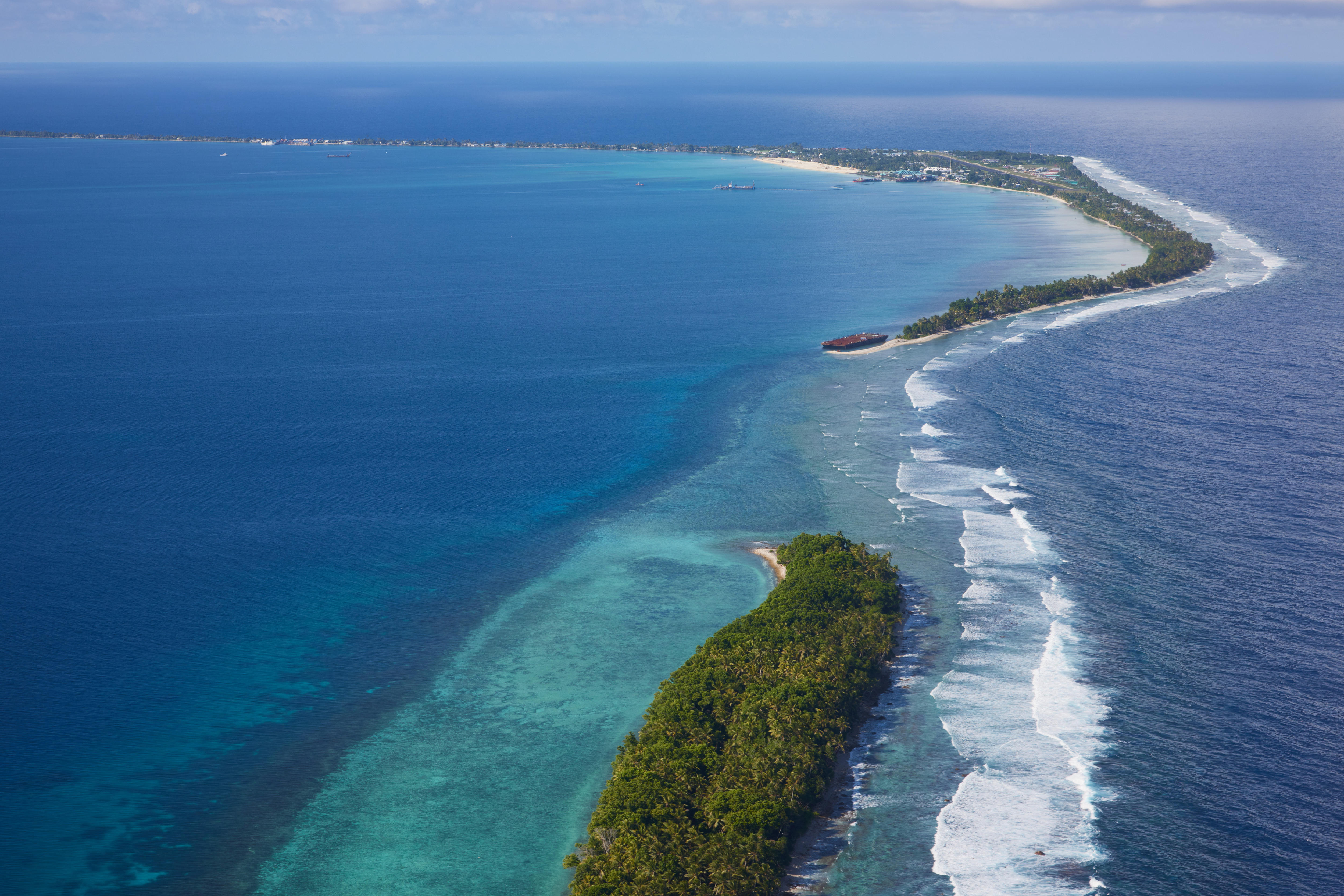
Tuvalu has an average land elevation of less than 2 metres above sea level.
While the treaty has been embraced by those seeking education and work opportunities, it raises an urgent question: What happens to those who stay as the land and population shrink?
A declining population
Since 2018, the population of Tuvalu has been slowly falling.
The ballot to apply for the Falepili Union visa is not open yet — and won't be for about nine months — so it is unclear exactly how many will apply to move overseas.
But if other migration pathways are any guide, it will be popular.
This year, it was estimated that 20 per cent of Tuvalu's population applied for the Pacific Engagement Visa, a pathway for Pacific islanders to gain permanent residency in Australia.
Those lucky enough to snag a visa joined the growing diaspora of some 700 Tuvaluans living in Australia.
Brain drain is a growing issue in the Pacific, with skilled workers leaving their countries of origin to work elsewhere.
At the Pacific Islands Forum leaders meeting in Tonga last month, World Health Organization regional director Saia Ma'u Piukala warned about the lack of human resources in the region.
"Many of our nations don't meet the recommended level of staff, and on top of that, many are leaving for opportunities abroad," he said.
"Over the past year … over 1,000 nurses have left from five countries, namely Fiji, Kiribati, Nauru, Tonga and Tuvalu."

Puaseiese Adrienne Pedro (left), her three daughters and her granddaughter call Tuvalu home.
Tuvaluan journalist Puaseiese Adrienne Pedro has seen the effects of a declining population in her country.
"It's a fear for the elderly people that most of the developments in the outer islands are not moving forward because there are no young people there in the islands to do the job," she said.
"Most of the young people are out of the country right now because of those schemes."

Merineta Kitara (right) and her family hope to move to Australia to access better education and health care.
Merineta Kitara is hoping to migrate to Australia.
As a mother of four, she looks forward to a future where her children are free from the looming dangers of the rising sea, with access to education and health care far beyond what Tuvalu can offer.
Yet, despite her excitement, Ms Kitara wishes these opportunities existed in the place she calls home.
"It's our beliefs as Christians that God has given us this land to live and to stay on," she said.
"We know [climate change is] happening because we can see it … that keeps us frightened of staying here in Tuvalu."
Creating new opportunities
While the future seems bleak, attempts are being made to stem the tide.
Meg Keen, a senior fellow at the Lowy Institute, said improving the country's education system would be key to maintaining the level of skilled workers.
"The biggest asset in Tuvalu is its people, and so you're going to have to invest in people and preferably invest more than what is going to be migrating out the door," she said.
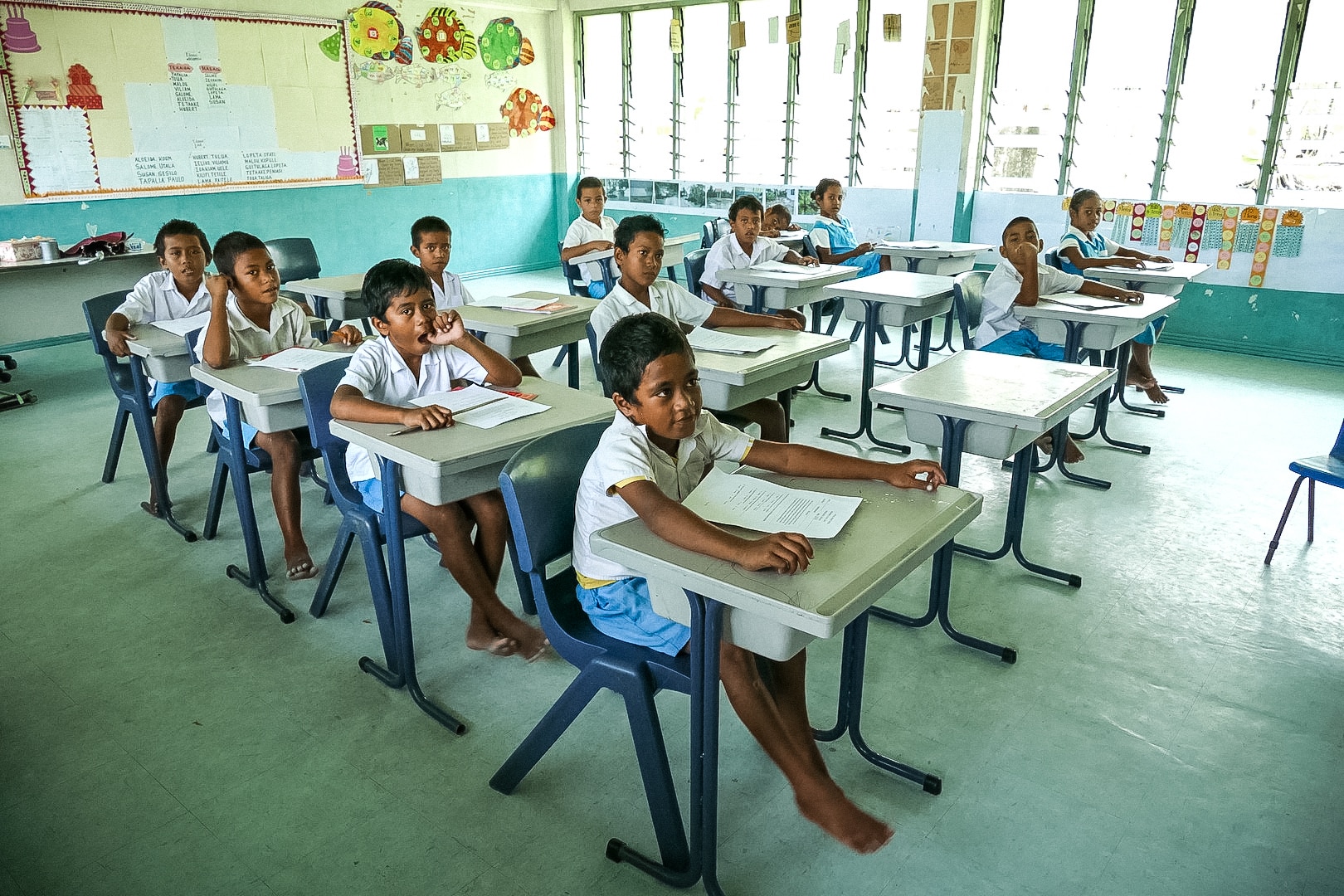
A primary school in Nui island was flooded after a cyclone caused a wave surge, but was reopened two weeks after the disaster.
Tuvalu has two donor-funded projects: TAPQE — Tuvalu-Australia Partnership for Quality Education — funded by the Australian government, and TuLeP — Tuvalu Learning Project — funded by the World Bank.
Under these two projects, the Ministry of Education says it is improving learning systems in early childhood education, primary and secondary schools.
Luamano Lusama Lalaia from the Tuvalu Learning Project said they were developing a standard curriculum for schools in the country.
While she praised the government's efforts, she said there was still a long way to go.
"We still need to invest more into training of teachers and improving our infrastructure," she said.
"A good environment for learning goes a long way and it would be a great investment for our government."
Holding land
Tuvalu is also pouring money into projects to reclaim land, with help from Australia.
In May, the Albanese government pledged $19 million to protect the coastline from rising tides.
The construction of "berm top barriers" — barriers of raised land — around the most vulnerable islands has significantly reduced the risk of flooding during storms.
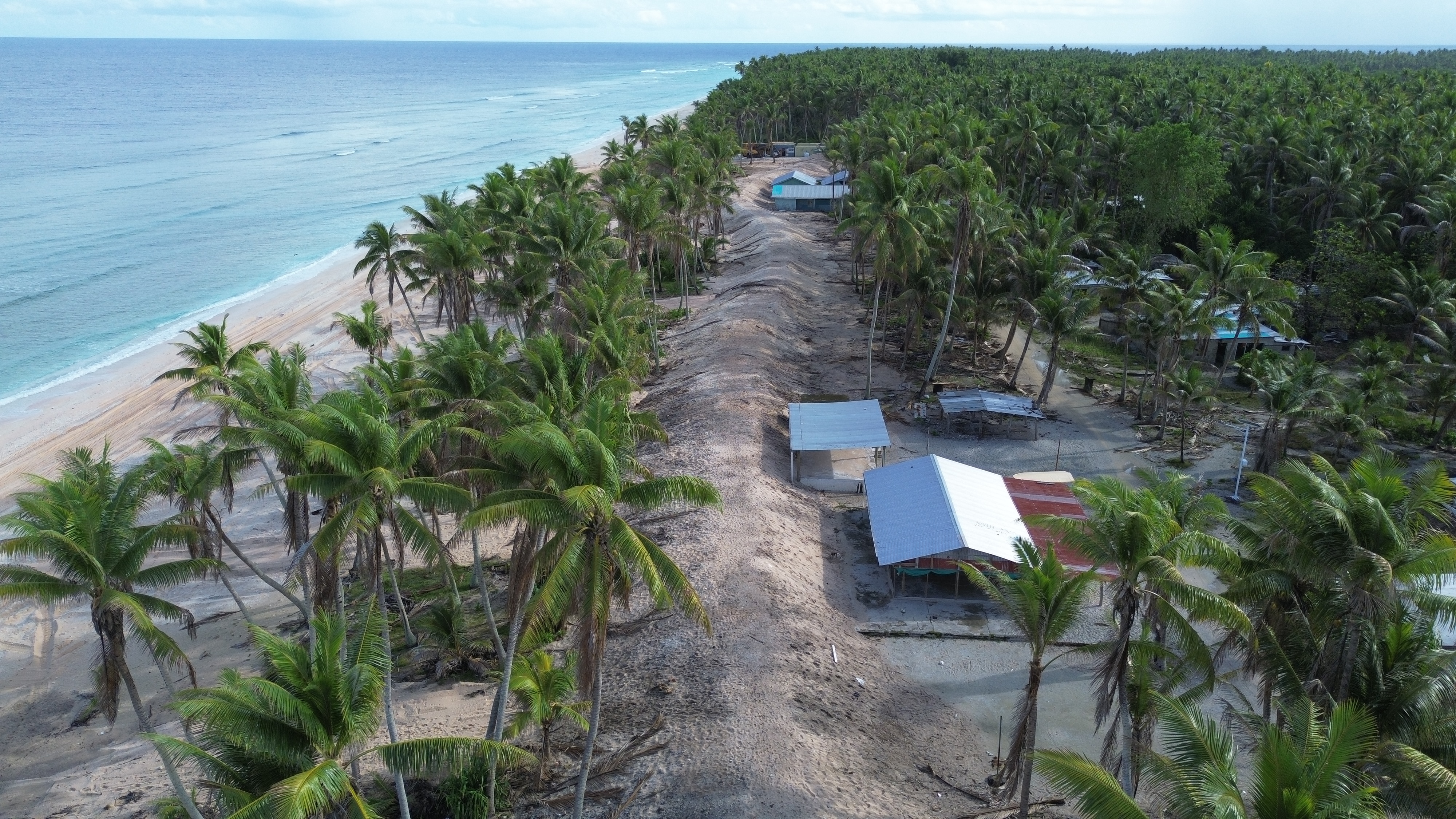
Berm top barriers protect the island by preventing sea surges from reaching the mainland.
Hall Contracting is delivering the project, and its chief executive and director Cameron Hall said the employment of local Tuvaluans was crucial to uplifting the nation and ensuring the future maintenance of infrastructure.
"As Tuvalu has a limited number of skilled construction workers, our expatriate team members train and mentor local workers," he said.
"These efforts proved so successful when delivering the Tuvalu Coastal Adaptation Project that we were able to transition to a workforce of plant operators comprising 100 per cent Tuvaluan workers."
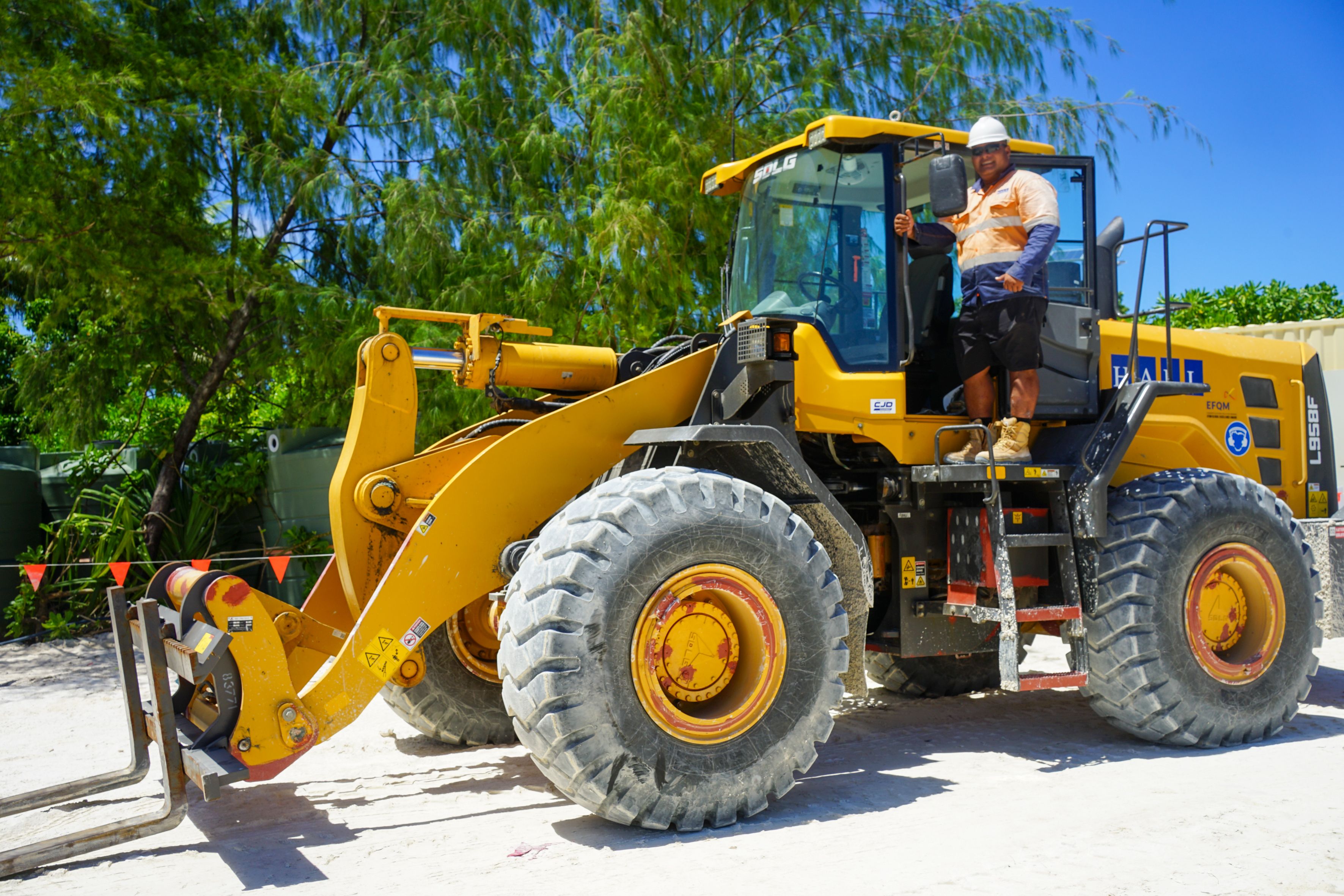
Since commencing work on the Tuvalu Coastal Adaptation Project in late 2022, Hall has employed 45 Tuvaluan workers, forming 62 per cent of the project workforce.
In recognising the islands' dependence on fishing, Mr Nivaga has directed his focus to coral restoration projects.
With an emphasis on "working with nature", his climate organisation harvests and transports coral to areas where the water is cooler so it can survive.
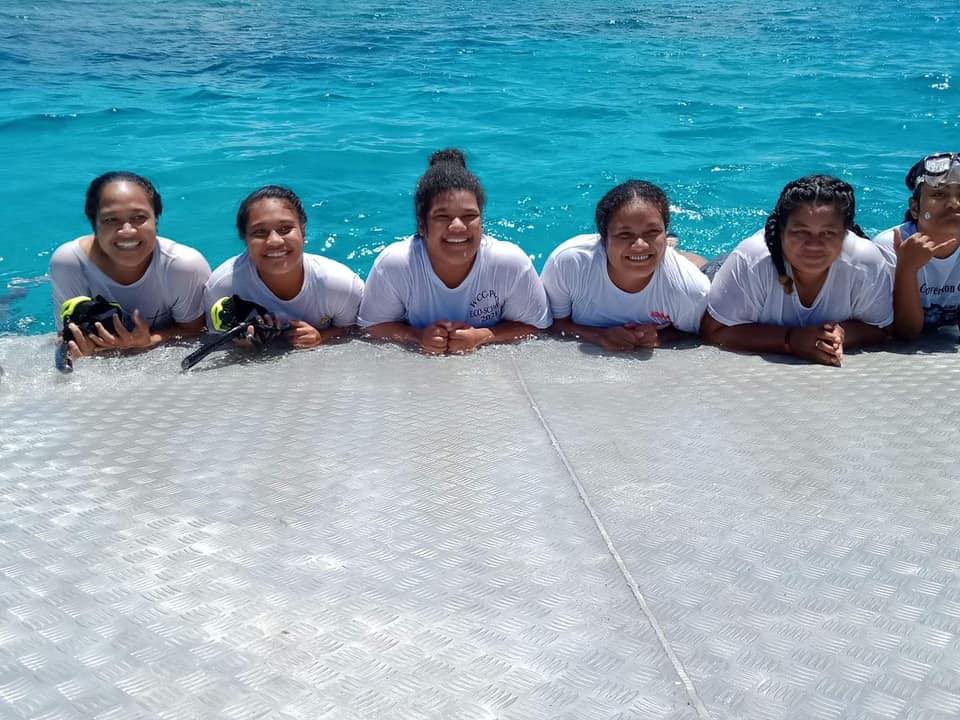
Climate group Fuligafou harvests and replants coral in areas where it is more likely to survive.
Dr Keen stressed the importance of climate resilience initiatives and praised Tuvalu's efforts.
But, she said, larger nations and greenhouse gas emitters needed to cut emissions to slow rising tides.
"While I would have confidence in the Tuvalu people to try and strike the right balance for the future of their people, I would have less confidence in the world to act in such a way that will save the Tuvalu nation from climate change," she said.
"[Land reclamation] slows down the inevitable, but without strong climate mitigation, even that only buys time. It isn't a solution."
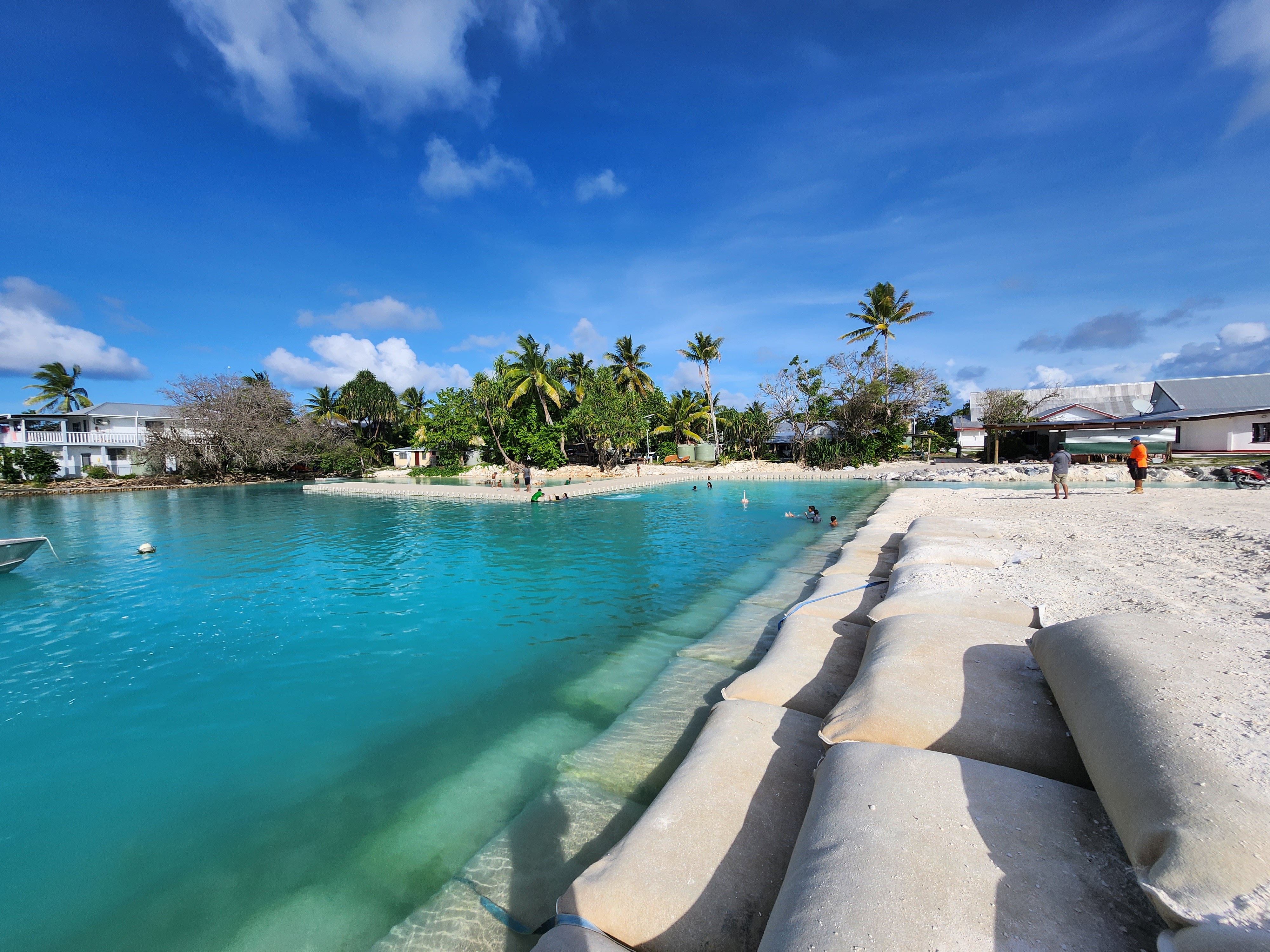
The Tuvalu Coastal Adaptation Project has protected community access to the Funafuti Lagoon.
Australia asked to do more
"Fale Pili" means to treat one's neighbour like family and it is central to Tuvaluan culture.
Mr Nivaga said the Falepili Union did not reflect these values of neighbourliness and mutual respect.
The Falepili Union was "not the solution", he said.
"The solution is that Australia commits to transitioning from the use of fossil fuels to clean energy.
"There is not even one line or even a word inside the treaty [about reducing emissions]."
"Seeing the impacts of climate change happening in our country, which we are not even 1 per cent responsible for, is frustrating.
"I have only one hope, and that is that our future generations will be able to live the happy life that we've been living right here in Tuvalu."
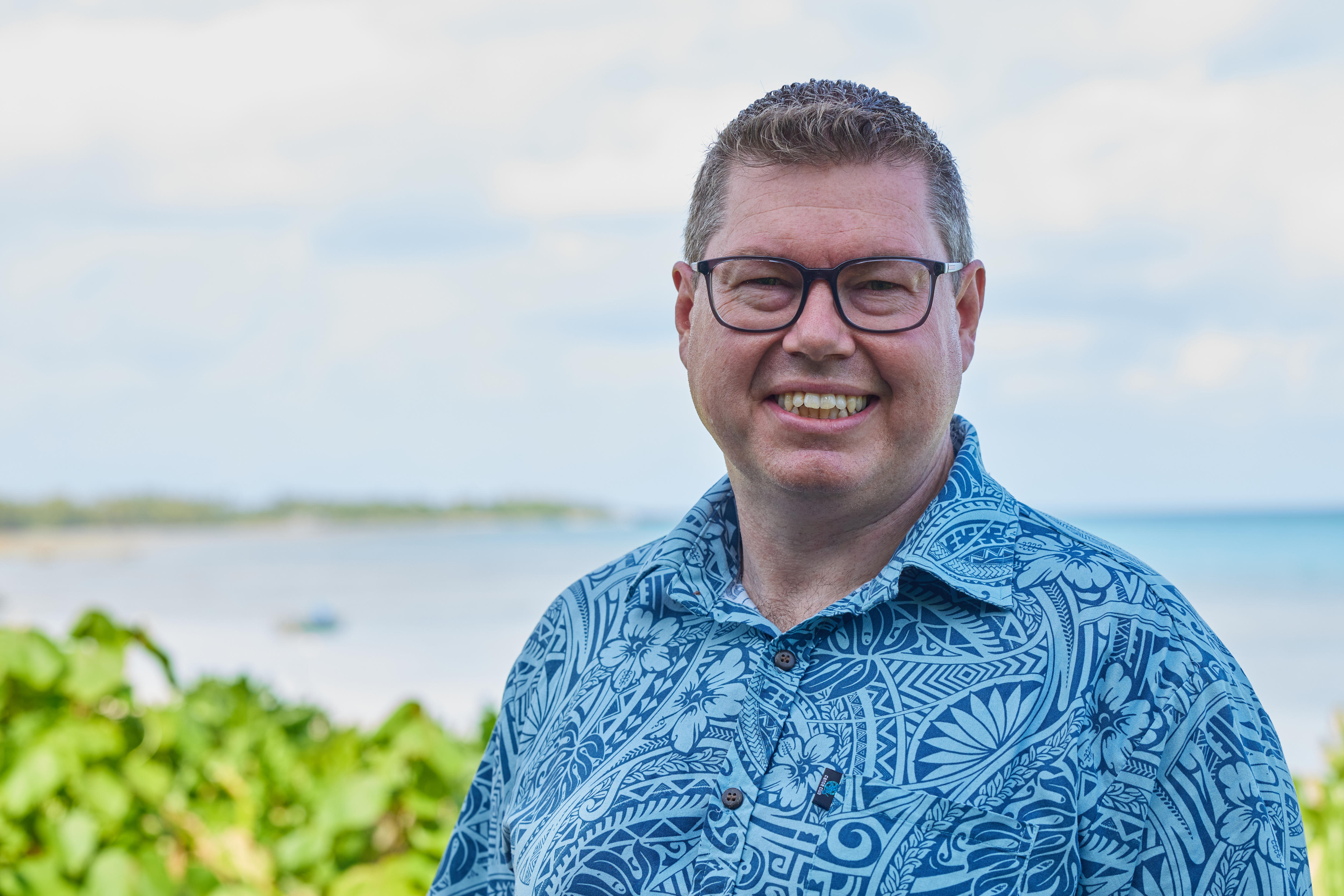
Pat Conroy is the Minister for International Development and the Pacific.
Pat Conroy, the Minister for International Development and the Pacific, declined the opportunity to respond directly to these comments.
A spokesperson from the Department of Foreign Affairs said: "Australia is committed to tackling the drivers and impacts of climate change at home and abroad, alongside and championing Pacific partners, including Tuvalu."
The department noted that by 2030, "more than 80 per cent of Australia's energy grid will be renewable and emissions will be reduced by 43 per cent, with a net zero target by 2050".
However, the Climate Authority recently advised that the country must cut emissions by 75 per cent in the next decade to limit global warming to 1.5 degrees Celsius.
By:https://www.abc.net.au/news/2024-10-01/tuvalu-independence-day-island-nation-faces-uncertain-future/104339306(责任编辑:admin)
下一篇:Journalist awarded for work on human trafficking in online scams arrested in Cambodia
 Socceroos rescue a point
Socceroos rescue a point  Wallabies thrash Wales 52
Wallabies thrash Wales 52 Jake Paul beats Mike Tyso
Jake Paul beats Mike Tyso Live updates: England vs
Live updates: England vs  US election 2024: Donald
US election 2024: Donald  US election live: Kamala
US election live: Kamala
- ·Man drives car into primary school chil
- ·Global tax on billionaires becomes poss
- ·Russia has revamped its nuclear doctrin
- ·Philippines to repatriate Filipina drug
- ·One Direction bandmates join friends, f
- ·Donald Trump's influence on Ukrain
- ·Rust, starring Alec Baldwin, premieres
- ·Ukraine reportedly uses UK-supplied lon
- ·Man drives car into primary school childr
- ·Global tax on billionaires becomes possib
- ·Russia has revamped its nuclear doctrine.
- ·Philippines to repatriate Filipina drug c
- ·One Direction bandmates join friends, fam
- ·Donald Trump's influence on Ukraine
- ·Rust, starring Alec Baldwin, premieres th
- ·Ukraine reportedly uses UK-supplied long-
- ·Russia rejects claims of sabotage on unde
- ·Sarah McBride responds to US House Speake
- ·One of Vietnam's high-profile politi
- ·Shanghai Walmart Attack: A Man Randomly S
- ·South Korean police officers jailed over
- ·Cambodia publicly shames maid deported af
- ·North Korea to use all forces including n
- ·Philippines condemns China attack of Viet
- ·US adds 2 more Chinese companies to Uyghu
- ·North Korean defector steals South Korean
- ·Malaysia deports Cambodian worker for cal
- ·Rebels battle for Myanmar junta’s weste

